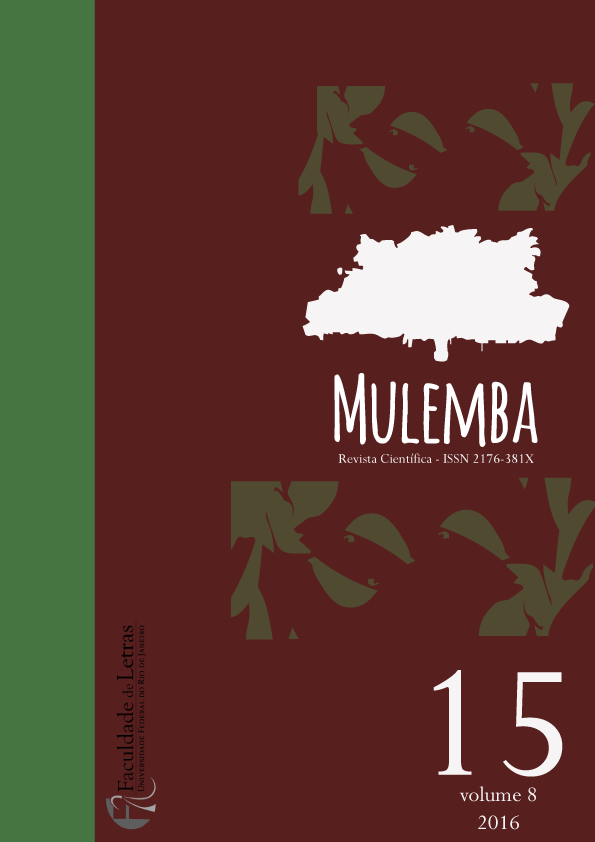Ilha e memória: uma leitura da obra <i>O útero da casa</i>, de Conceição Lima
DOI:
https://doi.org/10.35520/mulemba.2016.v8n15a5339Palavras-chave:
Conceição Lima, afeto, memória, narrativas nacionais, história, mitoResumo
A fim de propor uma leitura pelo interior da poética de Conceição Lima e buscar marcas das veredas identitárias, memorialísticas, afetivas e de reconstrução da terra natal ou retorno ao lugar originário ou lugar de afeto que Lima percorre, é preciso viajar pela Casa de seu ser, pontualmente, pela poética da obra O útero da casa (2004), já que em A dolorosa raiz do micondó (2008) o sentido de identidade e de busca da africanidade -- e não apenas da são-tomensidade -- amplia-se a uma busca mais coletiva que íntima, mais africana que são-tomense, e em O país de Akendenguê (2011) a poeta canta sua relação com a África e as pessoas que nasceram de seus encontros com as artes, os amigos, as referências afetivas e políticas, e, sobretudo, traduz em versos/cantos a sua referência musical, figurada no gabonês Pierre Akendenguê. Como ponto de partida, não é de se estranhar que seja esta, O útero da casa, a primeira obra -- muito embora não seja a primeira manifestação literária da poeta --, uma reunião de poesias que são uma espécie de relato íntimo do parto da Nação e das personalidades que pairam sobre a terra e suas referências míticas.Downloads
Publicado
2016-12-15
Edição
Seção
Artigos
Licença
Autores que publicam nesta revista concordam com os seguintes termos:
- Autores mantém os direitos autorais e concedem à revista o direito de primeira publicação, com o trabalho simultaneamente licenciado sob a Licença Creative Commons Attribution que permite o compartilhamento do trabalho com reconhecimento da autoria e publicação inicial nesta revista.
- Autores têm autorização para assumir contratos adicionais separadamente, para distribuição não-exclusiva da versão do trabalho publicada nesta revista (ex.: publicar em repositório institucional ou como capítulo de livro), com reconhecimento de autoria e publicação inicial nesta revista.
- Autores têm permissão e são estimulados a publicar e distribuir seu trabalho online (ex.: em repositórios institucionais ou na sua página pessoal) a qualquer ponto antes ou durante o processo editorial, já que isso pode gerar alterações produtivas, bem como aumentar o impacto e a citação do trabalho publicado (Veja O Efeito do Acesso Livre).

